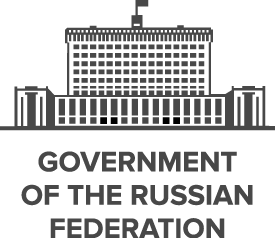Founded in the 12th century, the Principality of Muscovy was able to emerge from over 200 years of Mongol domination (13th-15th centuries) and to gradually conquer and absorb surrounding principalities. In the early 17th century, a new ROMANOV Dynasty continued this policy of expansion across Siberia to the Pacific. Under PETER I (ruled 1682-1725), hegemony was extended to the Baltic Sea and the country was renamed the Russian Empire. During the 19th century, more territorial acquisitions were made in Europe and Asia. Defeat in the Russo-Japanese War of 1904-05 contributed to the Revolution of 1905, which resulted in the formation of a parliament and other reforms. Repeated devastating defeats of the Russian army in World War I led to widespread rioting in the major cities of the Russian Empire and to the overthrow in 1917 of the imperial household. The communists under Vladimir LENIN seized power soon after and formed the USSR. The brutal rule of Iosif STALIN (1928-53) strengthened communist rule and Russian dominance of the Soviet Union at a cost of tens of millions of lives. After defeating Germany in World War II as part of an alliance with the US (1939-1945), the USSR expanded its territory and influence in Eastern Europe and emerged as a global power. The USSR was the principal adversary of the US during the Cold War (1947-1991). The Soviet economy and society stagnated in the decades following Stalin’s rule, until General Secretary Mikhail GORBACHEV (1985-91) introduced glasnost (openness) and perestroika (restructuring) in an attempt to modernize communism, but his initiatives inadvertently released forces that by December 1991 splintered the USSR into Russia and 14 other independent republics.
Following economic and political turmoil during President Boris YELTSIN's term (1991-99), Russia shifted toward a centralized authoritarian state under the leadership of President Vladimir PUTIN (2000-2008, 2012-present) in which the regime seeks to legitimize its rule through managed elections, populist appeals, a foreign policy focused on enhancing the country's geopolitical influence, and commodity-based economic growth. Russia faces a largely subdued rebel movement in Chechnya and some other surrounding regions, although violence still occurs throughout the North Caucasus.
Russia is a semi-presidential federation.
Members:
Resources
Displaying 776 - 780 of 1046Regional Law No. 1101-KZ “On attribution to local government plenary powers related to management of public land pertaining to re-distribution land stock”.
This Regional Law regulates relations concerning attribution to local government plenary powers related to management of public land pertaining to re-distribution land stock. In particular it envisages the modalities of auction sale of the right of lease of public land and conclusion of lease contracts. It regards transactions with agricultural land.
Regional Law No. 142-KZ “On viticulture and enological practices”.
This Regional Law establishes legal grounds for regulation of social relations in the sphere of manufacturing and trade of grape, grape wine and derivates of grape processing. It classifies the types of wine obtained from grape as a result of processing thereof and enological practices. It determines areas of viticulture for the purpose of traceability of vineyards and products tracing. Vineyards shall be subject to mandatory state registration as a part of land cadastre registration. Vineyards shall be subject to zoning by types of grape.
Regional Law No. 150-4-ZKO “On territorial land-use planning documentation”.
This Regional Law establishes composition and the modalities of elaboration of territorial land-use planning of municipal units, including territorial planning of municipal districts, general urban land-use plans and general plans of urban districts. Territorial land-use planning documentation must contain zoning of urban areas. The period of validity of land-use planning documentation shall be two years and shall be subject to regular renewal for each subsequent two-year period.
Regional Law No. 68-ZKO “On delimitation of plenary powers between state regional bodies in the sphere of land relations”.
This Regional Law delimits plenary powers between state regional bodies in the sphere of land relations.
Regional Law No. 140-4-ZKO “On territorial land-use planning”.
This Regional Law establishes the modalities for elaboration of land-use planning project containing land-use planning scheme, mapping of boundaries of land areas, land use restrictions, and the list of land-use planning arrangements.


